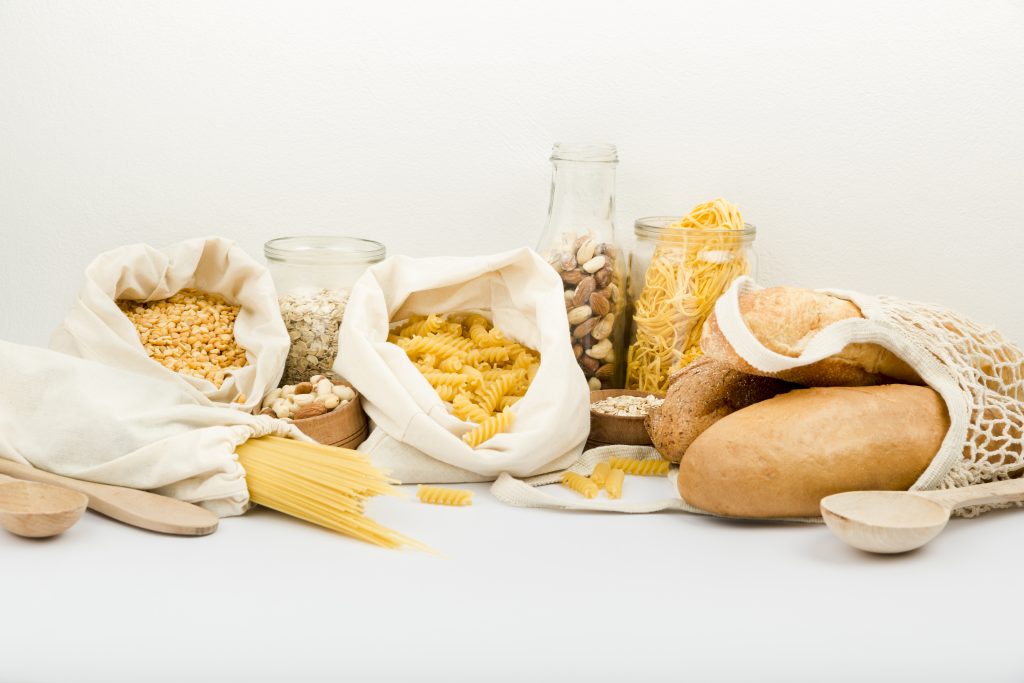
By now, everyone is well aware of the detrimental environmental effects that excessive plastic packaging is having, particularly within the food industry. In 2019, a staggering 896,853 tonnes of plastic packaging was produced (1), and though we have seen action taken to tackle this, progress is still slow. This post will take you through some of your options as a shopper trying to reduce your food packaging consumption!
Certain produce have never been easier to buy packaging-free; for instance, almost all supermarkets now offer loose fruit and vegetables. However, when it comes to more processed products such as pasta, grains, and beverages, the packaging-free versions are a little trickier to come by. In recent years we have seen an emergence in grocery stores dedicated to zero-waste shopping, where you are asked to bring your own jars and bags to fill up with these kinds of produce, and there are several very useful directives that highlight those available in the UK (see: ZeroWaste Map Search.) Unfortunately, there is a (literal) price to pay for this, with such organic, zero-waste stores being notoriously expensive and not very accessible to those on a budget.
We are, however, seeing an uptake in packaging-free initiatives from large mainstream UK supermarkets, who will be key players in the transition to a packaging-free future. For instance ASDA piloted a packaging free aisle in its store in Leeds in 2020, Waitrose has begun rolling out its ‘Unpacked Refillable Range’, and Morrisons has been trialling refills for less commonly packaging-free items such as coffee, rice, and even peanut butter! (2) A 2021 Greenpeace study summarised the progress made by the 10 biggest UK supermarkets, and found Waitrose and M&S at the top of the league tables with >60% reductions in plastic packaging, and Morrisons and Tesco at the bottom with reductions of only around 10%. Take a look at a full breakdown comparison table here, with metrics including reduction commitment, company transparency, and supply chain sustainability, to help inform your shopping decisions. (3)
Certain food products which are staples in a lot of people’s diets provide particular challenges in this domain, and do not have packaging-free alternatives due to issues such as logistics, safety, or hygiene. Even worse, in some of these cases, the requirements for the packaging means that it cannot be recycled. For instance, nearly all crisp packets are lined with metallised plastic film in order to extend shelf life, but due to the inseparable nature of these materials, they cannot be recycled at home. (4) Initiatives such as Terracycle are providing recycling schemes to dispose of these difficult-to-recycle materials, and there are brilliant resources such as RecycleNow’s directory informing consumers what items can and cannot be recycled based on location within the UK.
The resources provided in this post facilitate steps towards being more conscious about food packaging waste as a consumer. Though this is a vital part of transitioning towards zero waste, it is undeniable that the responsibility lies predominantly with the multi-billion supermarket corporations that supply around 85% of the food we eat. (5) It is important for us, the consumers, to put pressure and demand better from them – sustainable consumption should not be an expensive luxury! Here is a Greenpeace petition telling UK supermarkets to cut back throwaway plastic to start you off: Supermarket Waste Petition.